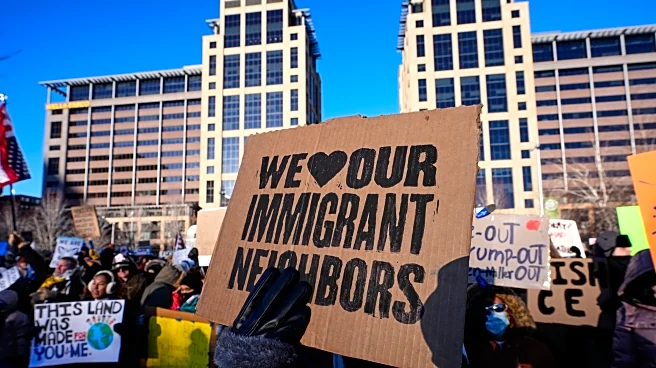Rapid Read • 8 min read
Edinburgh's accommodation and food services sector has experienced substantial growth, with RevPAR (Revenue Per Available Room) exceeding 20% above 2019 levels. This growth is attributed to strong demand and Edinburgh's increasing global profile, which has elevated citywide RevPAR to among the highest in Europe. The city's reputation as a cultural and political capital has fueled population growth and increased visitation, with international visitors contributing significantly to the demand for hotel rooms. The Edinburgh Festival Fringe continues to be a major draw, selling approximately 2.6 million tickets in 2024. The Scottish Parliament passed the Visitor Levy Bill in May 2024, allowing local authorities to introduce a levy on overnight accommodation to support sustainable tourism development.
AD
The growth in Edinburgh's accommodation and food services sector highlights the city's rising status as a global destination, which has significant implications for local businesses and the economy. The increase in international visitors boosts demand for hotel rooms, driving up average daily rates and RevPAR. The introduction of the visitor levy aims to generate additional revenue for local services and infrastructure, addressing the pressures of tourism and supporting sustainable development. This growth presents opportunities for investment and innovation in the hospitality industry, with new hotel openings and expansions planned to meet the rising demand.
Edinburgh's hotel market is set to expand further, with 17 hotels in the development pipeline scheduled to open between late 2025 and 2028. These projects will add nearly 3,000 rooms to the city's existing hotel supply, with a focus on limited-service and lifestyle properties. The City of Edinburgh Council plans to implement a 5% levy on paid overnight stays from July 2026, with funds allocated to city operations, infrastructure, and cultural initiatives. The market is expected to stabilize or shift towards more lifestyle- and luxury-oriented offerings, driven by the visitor levy and increasing demand.
The growth in Edinburgh's accommodation and food services sector raises questions about the sustainability of tourism and the impact on local communities. The visitor levy aims to address these concerns by generating revenue for infrastructure and cultural initiatives, but it may also lead to higher costs for visitors. The focus on lifestyle and luxury offerings reflects broader trends in the hospitality industry, where personalization and service enhancement are increasingly important. The sector's growth also underscores the importance of strategic planning and investment to balance economic benefits with social and environmental considerations.
AD
More Stories You Might Enjoy












